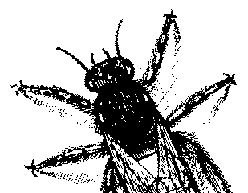This Just In -- More Support for Software Lemon Law from Jesse Berst
Updated February 3, 1998 By Bruce BrownTowards A Software Lemon Law, and Beyond...
You know the cliché -- "if you've got lemons, make lemonade." Well, we've definitely got a load of lemons in the world of PC software. Last month, BugNet set a new world record by publishing more than 500 bug/fixes in a single month. And this month we have evidence that software vendors may be using introduced bugs to force customers to buy upgrades. The point here is not that PC software is imperfect. Everything that humans touch contains imperfections. The point is that PC software vendors are increasingly willing to accept error levels which meet their needs, not the needs of their customers. As concentration in the PC software industry has eliminated brand competition as a meaningful force in the marketplace, PC users have been losing the ability to pressure vendors on the ever-growing bug issue. What to do? DAVID BERLIND at Windows Sources magazine recently suggested a software lemon law. BugNet believes a software lemon law -- akin to the auto lemon laws currently on the books -- is an excellent idea that merits serious consideration. As Berlind pointed out, the PC software industry's pervasive claim that it has no legal obligation to provide products that work -- or support them if they don't -- is simply unacceptable. And here's the irony: a software lemon law would be a tremendous step forward, not just for consumers, but for the industry itself. PCs will never achieve the appliance status that everyone in the industry craves until they have become as simple and reliable as a toaster. American consumers quite reasonable expect everyday products to work as advertised. And if the product doesn't work, they expect to be promptly supplied with one that does at no additional cost. As repugnant as the PC software industry finds the idea, it is simply going to have meet these expectations. IT IS FOOLISH, however, to think that the market itself can make this happen. The market is ruled by greed, and I'm sorry, but 300 million wrongs don't make a right. Laws are the way civilized people achieve intelligent public policy goals, and it is what is needed here. A software lemon law is really only the beginning of the legal changes needed, though. I believe Microsoft eventually will have to be broken up into separate application and operating system companies, just as Standard Oil was broken up. (Here again the market, personified by the haughty bozos at Apple, has completely failed to provide the checks and balances that society requires.) Perhaps the Sherman Anti-trust Act and the other old tools used against Rockefeller's Standard Oil cartel will be used again, or perhaps new legal tools will have to be forged. Already, the Department of Justice is reported to have begun serious Sherman and Clayton Anti-trust Act examination of Microsoft. BEYOND THIS, I believe society will eventually see software not as a product, but as a language which extends human capabilities in important new ways. In terms of human consciousness, this revolution is as important as the development of written language, which enabled people beings to learn from the experiences of people who lived before they were born, or that they never met. The theory that any one corporation or set of individuals "own" the means of creating this new, still-evolving collective consciousness is not just absurd, it limits the potential of the species. Turns out, what the world owes Bill Gates, Jim Barksdale and the rest is not a monetary royalty, but something that money can't buy -- the free gratitude of human beings forever. * * * For a different view of the law and computers, check out the "Internet and the Law" discussion group at the National Association of Business Economists' 1998 Washington Policy Seminar at the Hyatt Regency, February 25-6. It will be moderated by BugNet Senior Editor Bruce Kratofil, and include a U.S. Senator and a representative of the Electronic Freedom Foundation.
© BugNet material copyright 1994-1999 by BugNet. This historic replica of BugNet from the period 1994-1999 BF Communications Inc. Website by Running Dog
|
|||||





 IT'S TIME for a tall glass of
digital lemonade.
IT'S TIME for a tall glass of
digital lemonade.
